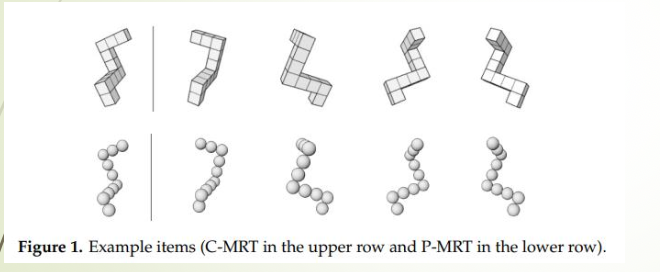Intelligence part 2
1/19
There's no tags or description
Looks like no tags are added yet.
Name | Mastery | Learn | Test | Matching | Spaced |
|---|
No study sessions yet.
20 Terms
Brain volume and IQ correlation + elaboration
.4, cortical S.A. may be better indicator of IQ (e.g. consider brain size of elephants)
Structures that increase cortical S.A. (2)
Sulci + gyri
Correlation between myopia + intelligence, elaboration, note + possible explanations (2)
Positive correlation (r = .57)
Degree of severity of myopia does not correspond with intelligence (non-linear)
Threshold effect observed: no significant differences in IQ scores for myopia beyond -2.0 dioptres
Both traits are heritable (myopia: 85%, intelligence: 47%)
Small but significant genetic effect of intelligence on myopia, indicating possible pleiotropy for intelligence + myopia
Other explanations, e.g. near-sighted people may not be as good at sport + thus gravitate towards intellectual activites
Heritability of intelligence (1→1)
47% (Williams et al., 2017)
Roughly ½ genetics ½ environment
Wilson effect description, possible causal mechanisms (2) + implication (1)
Heritability of intelligence increases with age
Likely due to:
Increased autonomy in environment selection (individuals select environments suited to their genetic predispositions to amplify them)
New gene activation during puberty
Genetic factors increasingly influence cognitive abilities as we age
Gender differences in intelligence (1) + note (1)
Males tend to perform better on mental rotation tasks (approx. 10 IQ points higher)
Interestingly, was reduced when using pellets instead of cubes + eliminated entirely when using female-oriented images (e.g. prams)

Racial differences in intelligence (1→1) + possible mechanism (1)
Best estimate today suggests that Black Americans have 10 IQ points lower on average than white Americans (+ this gap is decreasing)
Small difference → so much overlap that more relevant to focus on individual rather than group differences
Research suggests that environmental influences may account for significant part of this gap (as opposed to genetic influences)
Perception of a person’s IQ (1)
People who were glasses are perceived as more intelligent
Attractiveness + of IQ, note → explanation
Intelligence ranks highly in terms of attractiveness in mate (sexual + partner attraction), however kindness + personality usually ranked higher
Threshold effect observed: slight decrease in rated attractiveness from 90-99th percentile
May be attributed to stereotypes of social skills of people who have very high cognitive intelligence
Emotional intelligence (EI) def + note on measuring
The ability to recognise, understand and manage our emotions as well as recognise, understand and influence the emotions of others
Difficult to develop good quality measures (self-report tests to be used with caution due to self-bias)
Attractiveness of EI (2)
Rated as more attractive than cognitive intelligence, but still lower than kindness + understanding
No threshold effect observed
Sternberg’s Triarchic theory description (1→3) + disadvantage (1)
One model of intelligence with 3 primary dimensions
Analytical intelligence: problem-solving, analysis + critical thinking
Creative intelligence: developing novel ideas, dealing with new situations
Practical intelligence: ability to shape, adapt to and select environments to achieve one’s goals
Downside: least empirical support compared to other theories
Flynn effect description (1→1) + important note
Rising IQ scores observed in developed countries during 20th century (but not in memory span)
Slowing trend/reversal observed in recent last 25 years
Research is very messy in this area, may be related to test-taking ability, social + educational influences etc.
The influence of education on intelligence (1)
Research suggests formal education may increase intelligence
Intelligence vs expertise (1→1)
Training can increase expertise in certain area, rather than intelligence (e.g. training digit span)
Due to limited ‘transfer’ of these skills to other areas
Far-transfer def (1)
Improvement on tasks taht are dissimilar to the one trained, often involving different skills or contexts (e.g. practicing Sudoku → enhances general problem-solving)
Video games + intelligence (1→1→1)
Research is mixed but tends to show positive correlation
Seems to be due to a correlation with higher processing speed, as opposed to fluid or general intelligence
Q. What is the direction of the relationship? (i.e. does playing video games improve processing speed, or do people with better processing speed gravitate toward playing video games?)
Intelligence def + notes (2)
“A human’s maximal capacity to achieve a novel goal successfully using perceptual-cognitive processes” (Gignac & Szodorai, 2024)
Novel = cannot have previously encountered task
Perceptual cognitive processes include attention, visual + auditory perception, sensory integration
Artificial intelligence def (1) + note (1)
“The maximal capacity of an artificial system to successfully achieve a novel goal through computational algorithms
Difference between human intelligence: perceptual-cognitive processes vs computational algorithms
Is AI intelligence (yet)? (1)
No: large language models (LLMs) seem to exhibit expertise (from extensive training) rather than intelligence (cannot solve novel problems → no transfer)